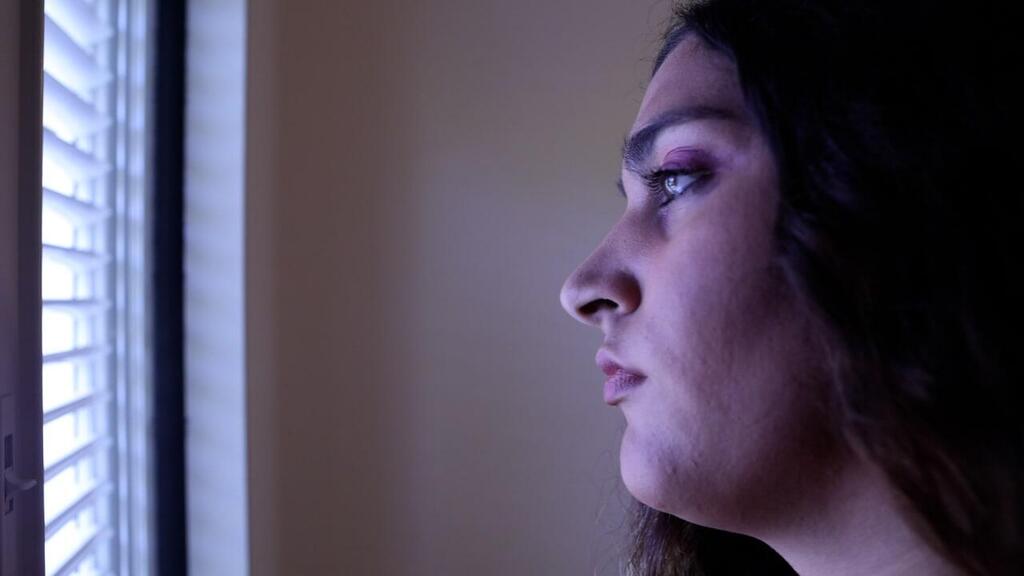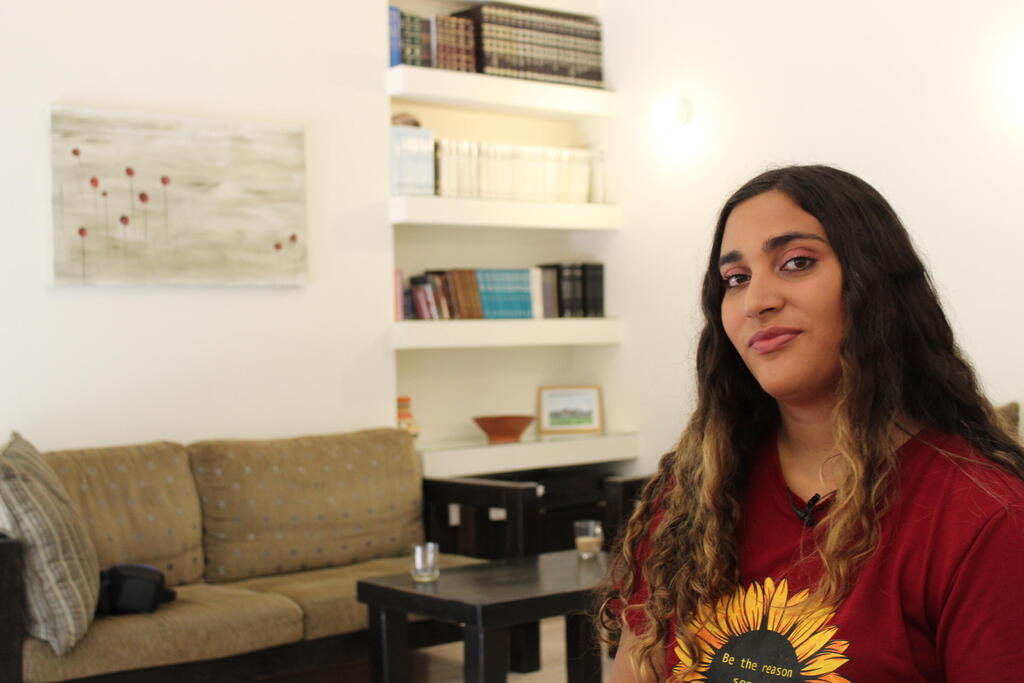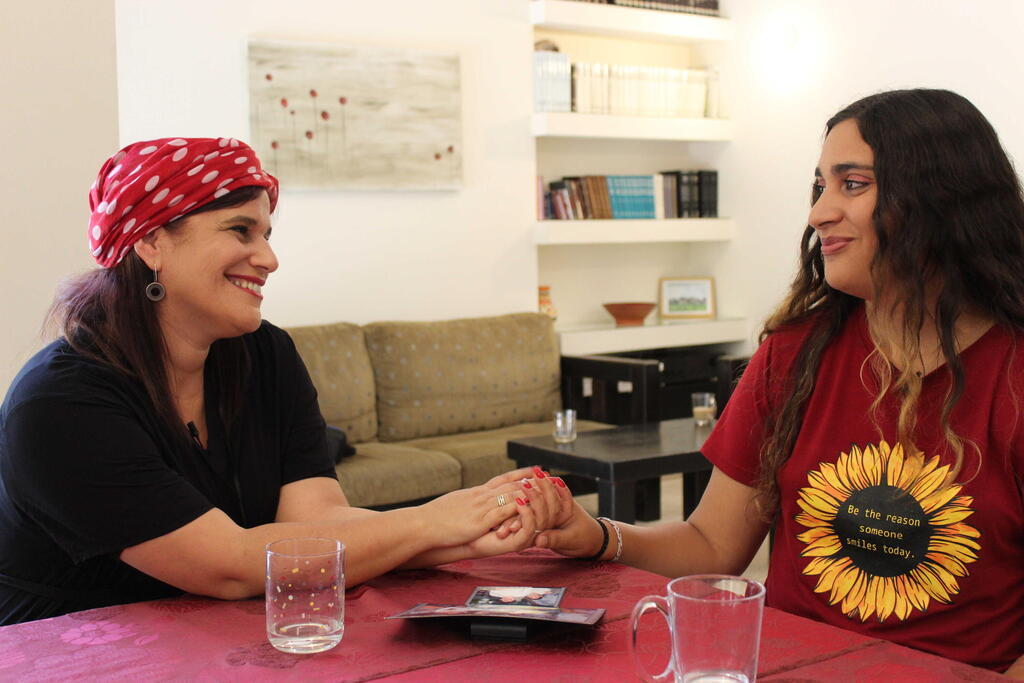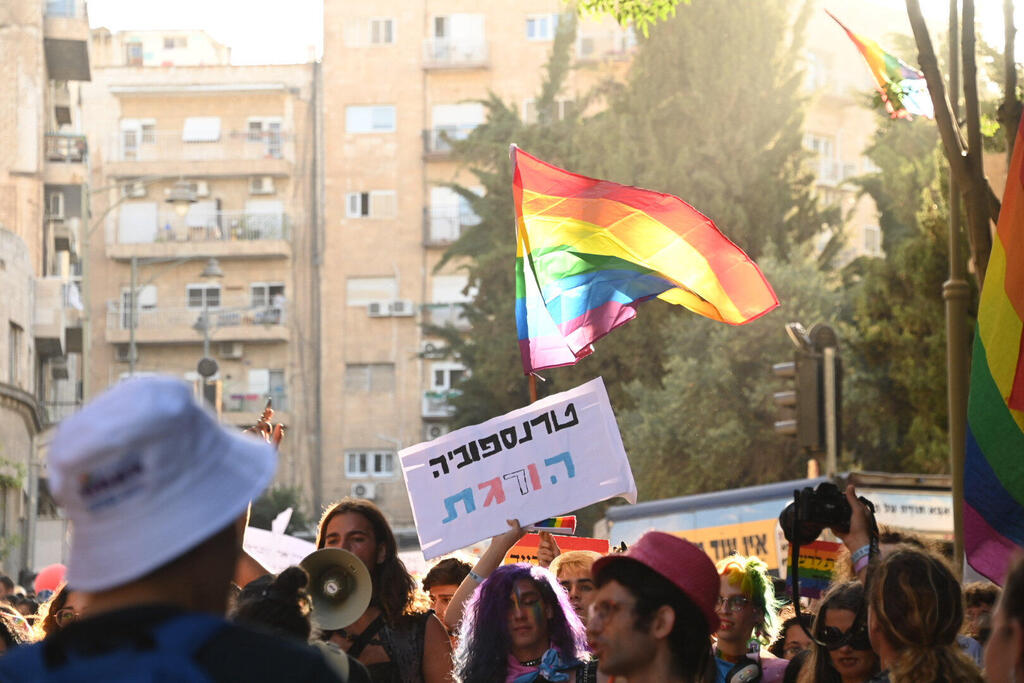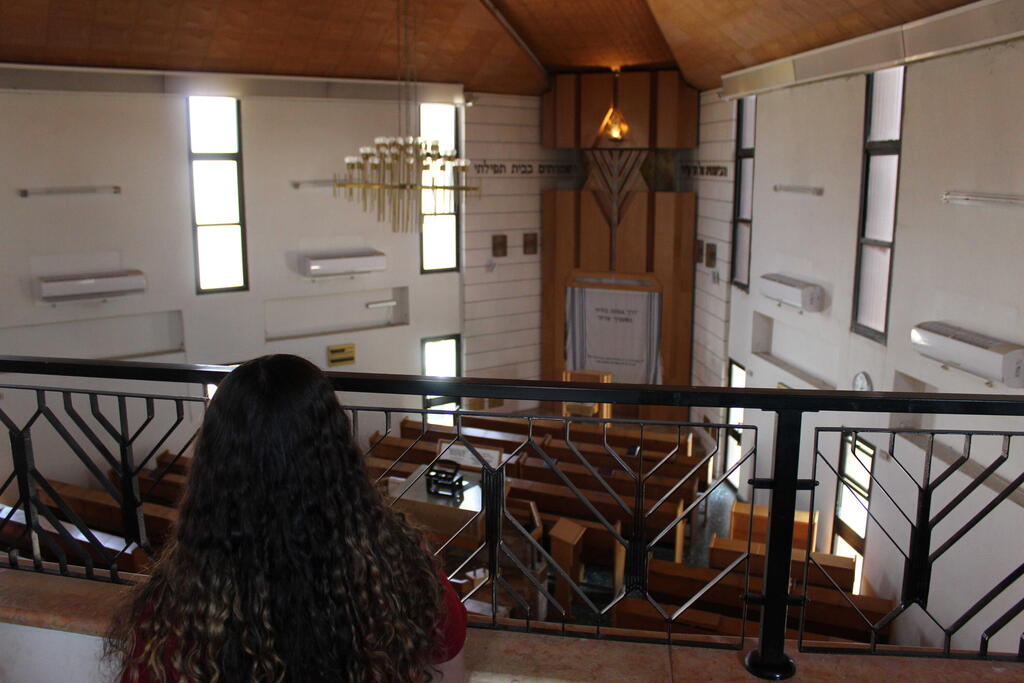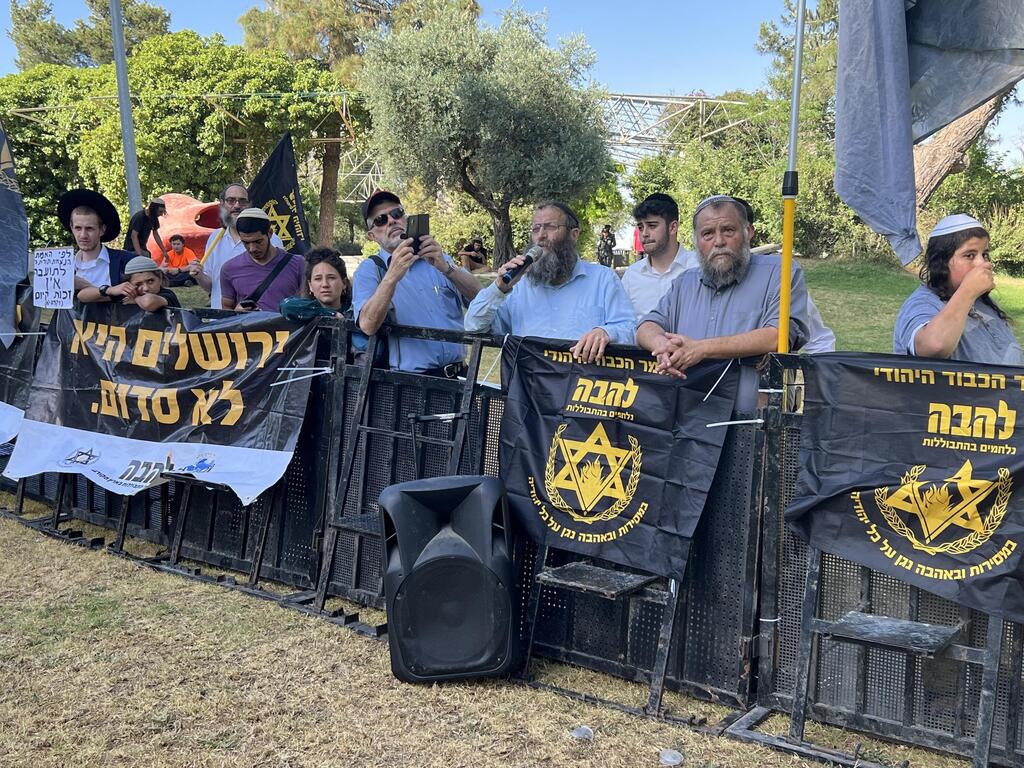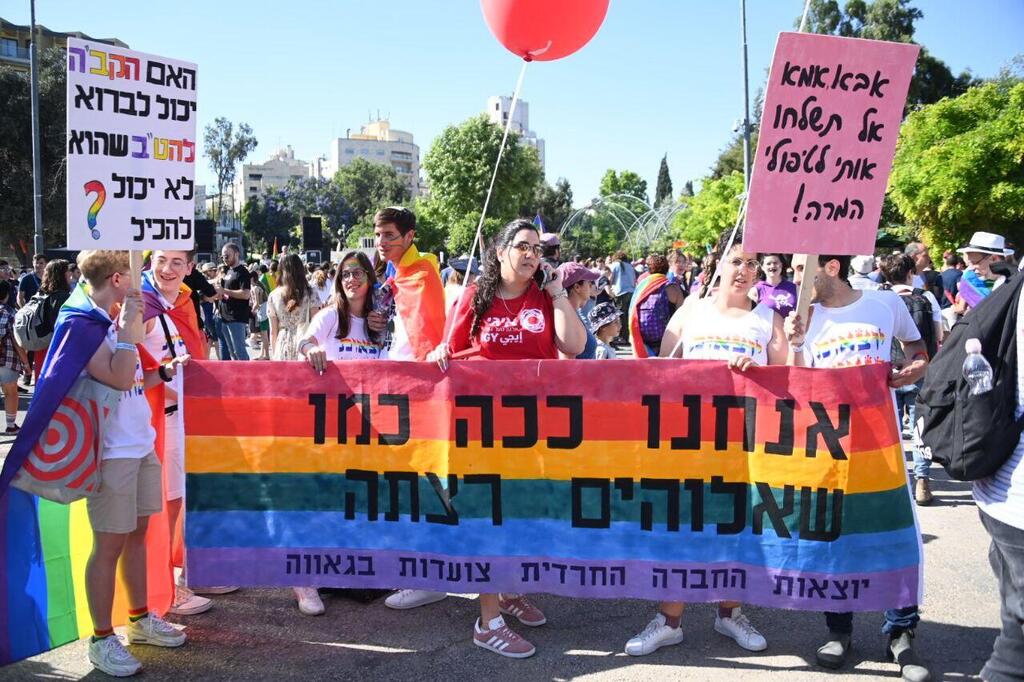Getting your Trinity Audio player ready...
"I was hospitalized in a psychiatric ward after I tried to take my own life. I begged my mother: Mom, I can't do this anymore, release me from this pain, I'm a girl."
Other stories:
These are the words 19-year-old Shachar Chefer from the small religious community of Bnei Darom in central Israel used to describe coming out as transgender four years ago.
Next to her sits her mother, Liat, who wears a head covering and defines herself as a very observant person.
"She told me: 'Is that it? Be a boy, be a girl, be a kangaroo as long as you stay with us and be happy.' This was the most significant moment of my life," Shachar tells us with excitement.
As she warmly embraces her mother, she says she knows she is privileged, knowing other young transgender people whose parents have completely disowned them. For transgender people hailing from religious households, dealing with such situations is often more complicated.
Already at 12 years old, Shachar became aware of her gender dysphoria and she's lived with that internal dissonance for years and suppressed these feelings and continued attending a yeshiva wearing a kippah and tzitzit.
Only when she came out as trans, Shachar felt she could finally be herself. "For me, my life started four years ago. I celebrate my birthdays on the date that I came out of the closet," she said.
"November 18, 2018. I understand that I was a person before then also, and he needs to be remembered. It's not really that I was born four years ago - but on the other hand, I do think the real me, the me that's open and honest and social, didn't exist beforehand."
After she opened up to her parents, her mother took her on a clothing and make-up shopping spree. Later on, Shachar started taking hormones and embarked on the long process to help her identify with her gender.
"In the beginning, I didn't understand the meaning of it. Gradually, we learned, we researched. We understood there is no other option," her mother Liat explaines. "We understood our role as parents is to minimize as much as possible the gender dysphoria that Shachar feels, and we acted."
"What parent is entitled to come and say 'I'm a parent on these conditions'? She is our daughter," stresses Liat.
The Chefers identify as national-religious, and Shachar grew up among three siblings. Before revealing her true identity, Shachar admitted that she was closed-off and shy as a child, and in ninth grade, her mental state began to go downhill.
"I started harming myself, I had a lot of suicidal thoughts. I turned to my parents and told them: 'I can't live normally anymore, I'm afraid that one day I won't wake up in the morning. I want to be hospitalized'," she recalls.
Shachar's arms reveal many scars from her troubled teenage years, as well as a tattoo reading "H;PE". She explains the meaning behind her tattoo, saying that "it's a sign that says that I could've chosen to stop, to quit, and I chose to continue on."
What was supposed to be a two-three week hospitalization turned into almost a full year of psychiatric treatment. Shachar admits that she went through an eye-opening process that helped her learn to accept herself.
"There I went through a switch, from a yeshiva boy - to myself. I came in there with a kippah, short hair, tzitzit and all - I walked out of there myself. I left there with makeup, with women's clothes, with self-confidence, with belief in myself and self-love."
Shachar shares that once she came out of the closet, she could work on proudly standing behind her identity, and standing up to those who didn't accept her.
"When I was in the yeshiva before I came out of the closet, everyone made fun of me and humiliated me. They called me 'homo' or 'coccinelle' [a derogatory term for gender nonconforming people] all the time," she describes. "From the minute I came out of the closet, and I said without a doubt that I am who I am, and that I'm not listening to what others think and not apologizing - people don't dare say anything to me."
As for her religious identity, Shachar considers herself somewhere on the religious spectrum. She believes and prays, and is religious in her own way. "You need to just be a good person," she says. When she goes to synagogue, which she tends to do weekly on Shabbat, she prays in the women's section, and claims that it now feels natural to her and her community.
Shachar's father, a systems engineer, also supported her throughout her journey but had a hard time getting used to the process. "For a while, he only spoke to me in English, to avoid using gendered words," she shares. "But he was always there for me. He said: 'Even when if it's hard for me, I love you'."
Her siblings, on the other hand, are more divided in their acceptance. Her sister, like her parents, accepts her with open arms, but her brothers struggle to do the same.
Shachar's older brother, who is no longer religious, sometimes still insists on referring to her as a male. She describes their relationship as basic, admitting they aren't very much in touch.
Her younger brother also had a hard time wrapping his head around Shachar's identity. "He would say: 'Yair died, and I don't know Shachar'. Yair is my dead name," she said. Their relationship is improving with time, and now she says, with great excitement, they're back to acting like siblings.
After she began her transition process, Shachar attended a boarding school designated for youth at risk, for she could not return to the yeshiva. Among the religious community, including within the government, there are many voices that oppose the LGBT community.
"I think they look at us from the outside. If someone talks about the LGBTs as a whole, it's easy for them to say they do bad things because they don't think of them as people," Shachar said. "If we'll sit down for a conversation for half an hour, I am not sure that they'd continue thinking that way."
Shachar is growing up in a society that, while still conflicted, seems to be slowly warming up to the LGBT community, with pride parades becoming a cherished annual celebration and countless movements pushing for change. When asked what kind of world she sees her children growing up in, she stated that she hopes "that by the time I get married, there will be the option to not only be recognized in public, rather also in marriage.
"I will be able to have biological children, because I went through fertility preservation processes. I want my child to know that they can be whatever they want."


